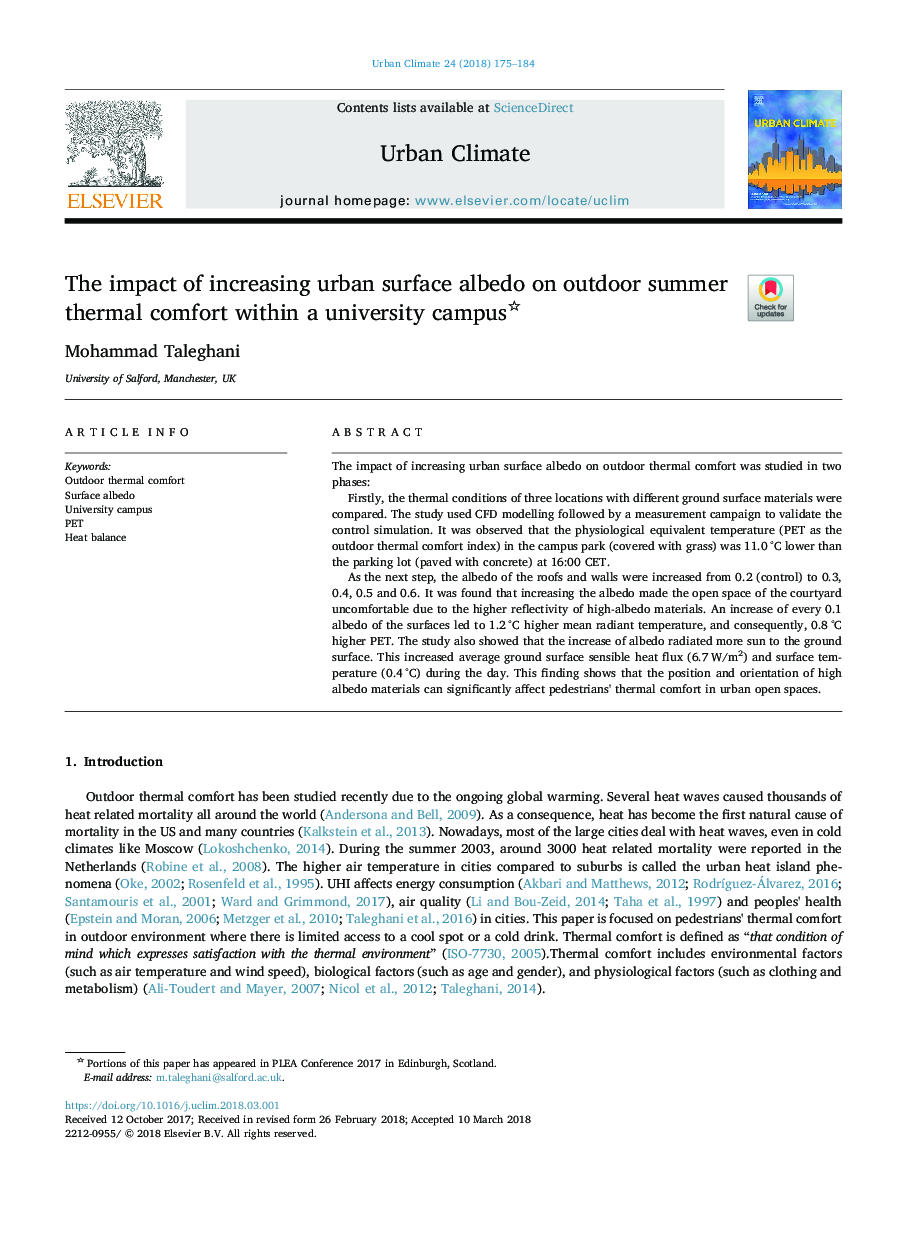| Article ID | Journal | Published Year | Pages | File Type |
|---|---|---|---|---|
| 6576856 | Urban Climate | 2018 | 10 Pages |
Abstract
As the next step, the albedo of the roofs and walls were increased from 0.2 (control) to 0.3, 0.4, 0.5 and 0.6. It was found that increasing the albedo made the open space of the courtyard uncomfortable due to the higher reflectivity of high-albedo materials. An increase of every 0.1 albedo of the surfaces led to 1.2â¯Â°C higher mean radiant temperature, and consequently, 0.8â¯Â°C higher PET. The study also showed that the increase of albedo radiated more sun to the ground surface. This increased average ground surface sensible heat flux (6.7â¯W/m2) and surface temperature (0.4â¯Â°C) during the day. This finding shows that the position and orientation of high albedo materials can significantly affect pedestrians' thermal comfort in urban open spaces.
Related Topics
Physical Sciences and Engineering
Earth and Planetary Sciences
Earth and Planetary Sciences (General)
Authors
Mohammad Taleghani,
